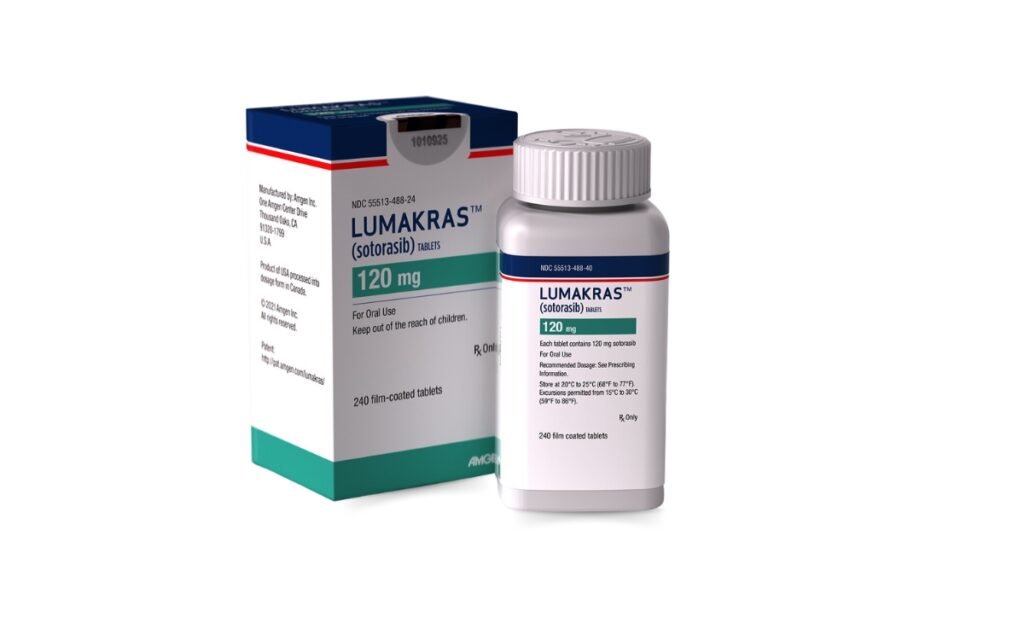ESMO 2023: LBA10
Nevertheless, a shadow has been cast over the KRAS inhibitor due to recent criticisms by FDA advisors. They raised concerns earlier this month, suggesting that the primary endpoint of progression-free survival in a confirmatory trial conducted by the company was challenging to interpret. Lumakras had received accelerated approval in May 2021 as a second-line treatment for patients with KRAS G12C-mutated non-small cell lung cancer. At that time, Amgen was instructed to initiate both the confirmatory trial and a dose optimization study.
The latter study is still underway, comparing the efficacy of the 960-milligram dose with the 240-milligram alternative. An update to the clinical trial record on October 10 led to a significant delay in the primary completion date, shifting it from August 23, 2024, to November 14. Despite these challenges, Amgen’s commitment to Lumakras and the 960-milligram dose remains unwavering.
What bolsters this commitment further is the introduction of new phase 3 data, presented at the European Society of Medical Oncology Congress. These data provide insights into the combination of Lumakras with Amgen’s EGFR antagonist, Vectibix, in patients dealing with chemo-refractory KRAS G12C mutated metastatic colorectal cancer. Notably, both the 960-milligram and 240-milligram dose levels demonstrated a statistically significant advantage in progression-free survival compared to the investigator’s choice of treatment.
“With these new data, sotorasib plus panitumumab showed consistent efficacy across key subgroups at both doses and supports the biologic rationale of combining these two biomarker-directed therapies. Fewer than 20% of people diagnosed with mCRC survive beyond five years, and additional treatment options are clearly needed, particularly for the patients with KRAS mutations for whom evidence-based targeted options were not yet available.”
– Filippo Pietrantonio, M.D., Fondazione IRCCS Istituto Nazionale dei Tumori
With a median follow-up period of 7.8 months, patients on the 960-milligram Lumakras dose experienced a progression-free survival of 5.6 months, while those on the 240-milligram dose had 3.9 months. In stark contrast, patients receiving the investigator’s treatment had a median progression-free survival of just 2.2 months. Furthermore, patients on the 960-milligram Lumakras dose achieved a 26% objective response rate, whereas only 6% of patients on the 240-milligram dose had a similar response. Patients on the investigator’s selected therapy had a 0% objective response rate.
Conclusion
Despite recent criticisms by FDA advisors and ongoing challenges in the development of Lumakras, Amgen remains committed to its KRAS inhibitor, particularly the 960-milligram dose. This commitment is further reinforced by promising phase 3 data demonstrating the effectiveness of Lumakras in combination with Vectibix for colorectal cancer patients with KRAS mutations, offering new hope and treatment options in a challenging landscape of limited survival rates.





























